|
Pop a mind-altering substance. Maybe a cup of warm cider. Or a soft wool blanket. Or the semaphore of a cat who sits just out of reach. Is an edible available? Sure, that works. Or simply rub your entire torso against a wooden fence until your neighbor buys a shotgun and brandishes it at you. Next, take out your pen and stab yourself with it, like a Super Solider™ preparing to go into battle except the battle is the act of laying extremely still in a purple meadow surrounded by swaying trees. Birch and Elm and Oak and Willows and every conceivable genus of Eucalyptus. Trees. Those woven sinews snaking between now and next, up and down. Sit and smell your invention. No don’t write, you dummy, that’s how the ink spills out and ruins the meadow. Don’t sully your imagination by pressing it against these soft, sweet trees. You little Longhorn Beetle. You fruit of rot. You inadvertent mycelium. Holster that pen, soldier. Parents will probably start to creep in at this point. As they do. As they will. They’ll stain the walls with bits of china and they’ll bring with them the artifacts of childhood. A watercolor of a nameless boat. Charles Aznavour records stacked to the ceiling. A Bescherelle of nonexistent conjugations. A few pets will appear. A floppy-eared dog. A cat named Magic who ran off into the ravine. Maybe a small bird will perch on your shoulder as you practice your scales. Or a rat will emerge from your sleeve with a sage piece of advice. Something about the soil in a cemetery. You should listen to it, because it’s just you in animal skin, which is the best skin, the best you. There’s a bloodletting coming, obviously. But it’s not prophetic. Just a happy splatter. A happy little splatter with your family watching proudly. "No don’t write, you dummy, that’s how the ink spills out and ruins the meadow. Don’t sully your imagination by pressing it against these soft, sweet trees." This piece was originally published in the Stansbury Forum on June 6, 2020. The Stansbury Forum is a website for discussion by writers, activists and scholars on the topics that Jeff focused his life on: labor, politics, immigration, the environment, and world affairs. Please be sure to check out their impressive work and support their mission. The original link to the piece is here and their website is here. The Narrative of Changeby Gary Phillips Trying to get a breath in a time of COVID 19 and knees to the neck. I belong to several dues paying mystery writer associations. These groups do not have the collective bargaining power for its membership like my white-collar Hollywood union the Writers Guild of America (WGA). The WGA has a past when its members got in the face of the studio bosses and some got their heads knocked in for their efforts and others blacklisted. Different then from the WGA, these aforementioned associations don’t exact a floor for book advances, set a standard pay for a short story of a given length, or seek to establish working conditions for the writer – which in the case of prose writers as distinct from script writing; it’s a solitary undertaking. But not for nothing the Mystery Writers of America (MWA), a national board I once served on as well as past president of the local chapter, does have as its motto, “Crime doesn’t pay…enough.” To that end the 75-year-old MWA has used the bully pulpit to advocate for a better status of genre writers, intervened in contract disputes, called to task shady publisher practices, and more than anything, provided a way for established pros to interact with first timers or those looking to get published. This through formal talks and seminars as well as bending an elbow at a neighborhood tavern or the bar in the evening during a mystery convention. And like the history of a lot of unions, the MWA wasn’t always diverse. It would be fair to say the MWA was something of a white old boys club for many a year. In fact, Sisters in Crime (SinC) was founded in 1987 by 26 woman crime writers including bestseller Sara Paretsky specifically to address the frustration they had with the obstacles they faced in publishing, and not receiving their fair share of book reviews in a field then dominated by male reviewers. Today matters are different. There is not only diversity of gender and race/ethnicity on the board of the MWA as well as sister misters on the SinC board, the membership reflects a changed landscape of the types of writers penning these stories. While the police procedural is still told, it could be a story of cop who’s a black woman confronting departmental racism to do her job right. Or about an Asian-American private detective who not only is perceived a certain way by others but is investigating the questionable death of a suspect at the hands of the police or some other so-called authority. No surprise then when in 2018 the MWA awarded former prosecutor turned author Lina Fairstein its Grand Master award and the membership rose up in opposition. Fairstein to many, me included, helped railroad, along with the police, five black and brown teenager into prison for serious time, convicting them of rape and beating a victim half to death in a “wilding incident” in the infamous Central Park Five case. A case where DNA finally exonerated the now grown men and the city paid out $41m in a settlement. The award was soon rescinded. Fairstein who has a solid record of pursing justice for years in cases of sexual offenses, maintained the youths were involved in some way in the rape in an op-ed piece she wrote for the Wall Street Journal in June 2019. Really the surprise was the MWA board picking Fairstein and claiming not to know the controversy surrounding her. Now in the wake of nation-wide protests sparked by the death of George Floyd, captured agonizingly on smartphone video, by fired Minneapolis police officer Derek Chauvin (now charged with 2nd degree murder), the MWA and SinC (and I’m a sister mister) have both stepped up. The organizations issued statements in support of efforts at reform of the police. From SinC’s statement, “The murders of Breonna Taylor, Ahmaud Arbery and George Floyd are only three recent reminders of the 400-year history of violence visited upon Black people of the United States.” “Listening leads to understanding, and action leads to change,” the MWA’s statement read in part. On a listsev I’m part of, Crime Writers of Color, various discussions fly back and forth via email among the loose-kinit group – some of whom are part of the MWA and SinC. The morning following the publishing of these statements, folks on the listserv heard of examples of pushback from the membership, and the nature and character of such was bandied about. More importantly, reality demands that writers of color and their white colleagues have to re-evaluate what they write and how in they tell the story. There is no getting around the way in which black and brown communities are policed, be the cops white or not or a mixture as was present at Mr. Floyd’s demise. In this time of the virus that too will have to be depicted in some way in our fictions. Yet not every mystery story has to be about that (though I can imagine a story where a murderer kills someone and tries to make it look like complications from COVID) or the use of excessive force and race. But me and my fellow crime writes are challenged to consider the point of view, of who is telling the story and thus who controls the narrative…from the hardboiled to the cozy.
9/20/2019 In America, by Levi Rogers
by Jacqueline Heinze I write this post wrapped in irony. I agreed to write something about the Kavanaugh commotion two days before his confirmation, but after Senator Susan Collins spoke for 50-whatever minutes praising the Judge and chiding us from her distorted ethical platform, I concluded that words were no longer useful. After all, what more was there to say? None of Collins’ words—or McConnell’s or Graham’s or Flake’s (gaaaaawd!)—could erase what I had borne witness to. I watched Dr. Ford’s testimony, in which she was emotional, deferential, courteous, and careful. Then I watched Judge Kavanaugh, who was belligerent, disrespectful, misleading, and partisan. Neither Collins nor her GOP bros could explain away what I had seen and heard. Nor could they rewrite my own personal history with sexual harassment, emotional abuse, and silencing. They could not—cannot—argue me out of that which I know to be true. Dr. Ford still cannot return to her home because of violent threats against her and her family. Judge Kavanaugh sits on the Supreme Court. I get it. She lost. I lost. Women lost. We all lost. Again, what more is there to say? There are, however, things to do. There are, however, things to do.
3. Take care of yourself. Blah blah blah, but it’s important and something I’ve been ignoring. For months, I’ve been vacillating between grief and fury. I’ve been forgetting to eat, although I have not forgotten to drink. My neck and shoulders are as solid as bricks. I am ready to yell at anyone (read, white men) who dares cross my path. It is exhausting, so I’m working to change my agitated state. This past weekend I marched my kid and me into House of Intuition, a metaphysical shop to help people heal, and bought myself a crystal that I can program with my intention. I asked my crystal to keep me clear and calm through the midterms. Mostly, I carry my crystal (can one name their crystal?) in my front jeans pocket and rub it whenever I have the desire to set fire to whatever manifestation of the patriarchy I can get my hands on. I am also binge-watching The Good Place. Find out what your needs are and meet them.
My husband and I canvass, phone bank, and write postcards to get voters to the polls for the midterms. We also organize an activist group. Each week, I send an email to more than 100 everyday people—people who are between jobs, people who are overworked, who are moving, who are going through a divorce, who have infants or complicated dating lives, whose kids are struggling in school, whose parents are sick, who don’t have the time—and I list the ways they can volunteer for the midterms and encourage them to do so. Many of them write back and let me know, with everything else they have going on, what they are doing to help. It’s when I weigh too many words against the actions anyone can take to affect our democracy that I come down on the side of action. It’s time to focus on the work. I’m a writer. Of course words matter, but the noise in the fray is deafening. Much of it is also nonsensical and a great, big, gigantic lie, designed to make you go nuts (and, it is important to note, comes from a place of loserdom and fear.) Rather than react, find your focus. A good, solid primal scream could help, as could a book that validates what a woman warrior you are, or what an ally you are to a warrior woman. Get a massage if that’s what you need. Eat a bag of Pumpkin Spice Caramel Corn. See A Star is Born for the second time. Then, take action. “Walk the talk,” or “Make it work,” or “Be the change,” or “Ride or die,” or whatever words you need to step away from your screen and get into the fight. Then, take action. “Walk the talk,” or “Make it work,” or “Be the change,” or “Ride or die,” or whatever words you need to step away from your screen and get into the fight.
1/23/2018 Last Night On Broad StreetPhotography by Stephen Dyer by Eric Zrinsky January 22, 2018 Last night on Broad Street, it was damn near utopian. Frat boys and sorority girls with solo cups and facepaint high-fiving. Septum-pierced hipsters in Kelly green throwback crewnecks. Homeless people shout-singing “Fly, Eagles fly” along with business types in suits. People in cars honking their horns—not to intimidate or encourage anyone to get the fuck out of the way—but to offer mechanical cheers of solidarity to all of the pedestrians clogging the street. Color ceased to divide us. At least for tonight, we’re all black and green. I can hear the groans of those unexpectedly reading something about sports in a literary publication. You’re not alone. A lot of my artist friends tend to view sports as a thing to mock—something enjoyed by mindless meatheads and unthinking cavepeople. I won't even try to recount the number of “sportsball” comments I saw on social media leading up to the NFL Conference Championship games on Sunday. That may very well be the sentiment elsewhere, but it’s different in Philadelphia. The artists, the musicians, the jocks—we’re all the same here. We’re like some kind of modern American melting pot where it’s ok to be multifaceted and enjoy things that are seemingly at odds with one and other. Much to chagrin of many of we “high-thinkers,” it’s possible to appreciate the beauty and syntactic elegance of iambic pentameter while also reveling in the sheer ballet of an effectively orchestrated Run-Pass Option. I’ve seen countless photographers host openings at my art gallery unironically wearing 76ers gear. I’ve played and attended shows at venues all across the city with innumerable fans in Phillies hats. It’s a grand social experiment where all of the lunch tables in highschool got thrown into the Large Hadron Collider and we all emerged with pieces of interests from everyone else. Full disclosure: I’ve never considered myself a jock—probably the complete antithesis of whatever that distinction may mean to you. I grew up skateboarding and playing in punk bands and celebrated a “can’t fucking tell me anything” attitude well into my 20s. But still, sports found a way into most of my formative years. I played Rec soccer until I reached high school and even found myself going out for the freshman football team. Hell, maybe I’m a poor example, but Brian Heston and Malik Abdul-Jabbaar (two of my favorite Philadelphia poets) certainly aren't. Brian’s work gracefully depicts the struggles of working class violence in the Kensington section of the city during the high-crime 1980s. His language is vivid; it’s heartbreaking. It’s good fucking poetry. And aside from winning several awards for his writing, he knows how to dissect an Eagles defensive performance over a couple of shitty beers better than most people I know.
These are thinking, complex people who make beautiful art. Last night, I saw people laughing and crying in joy. I saw strangers hug one another and, just for a moment, forget how different they looked or where they would be tomorrow morning. I saw a city come together, if only temporarily. I heard a collective voice. Nota Bene: I would like to comment and recognize that the NFL is far from a perfect organization— very very far from it. Concussions and the effects of traumatic brain injuries are often largely unaddressed and underreported. Economic and political disparities between primarily white owners and primarily black players remains an ongoing and very real and significant problem. Domestic abuse committed by players against their loved ones frequently goes under-punished, or not even commented on. The unfair treatment of a brave man exercising his constitutionally protected right to protest is a prime example of racial inequality and the upholding of white privilege and supremacy.
Many players take a vested interest in the communities they represent. I’m instantly reminded of all of the great work that Connor Barwin’s “Make the World Better” Foundation did for underserved communities in Philadelphia while he was an Eagle or the incredible efforts of J.J. Watt in the wake of Hurricane Harvey. The National Anthem protests helmed by Colin Kaepernick and followed-up by NFL players of color have effectively brought racial inequality, police brutality, and other racially charged issues to the national stage - the management of these issues within the organization is an incredible letdown in the face of the bravery of Kaepernick -- as they continue to uphold white privilege at the expensive of a skilled athlete’s career and courage. Within the Eagles organization, Malcolm Jenkins - assisted by Chris Long - entered into long discussions regarding the racial inequality within the league and the treatment of black players - both as athletes within the NFL and citizens who routinely feel unsafe as a result of police brutality. [Jenkins has also been vocal about criminal and social justice reform, his guest to the Super Bowl is Kempis Songster]. Having these conversations: attempting to honor the excitement while acknowledging the bad is what we’re trying to do: as artists, as individuals, as sports fans and as activities. These voices and these conversations remain an important vehicle for the arts; and are essential in dissecting the intersection between the arts and athleticism; and we believe that attempting to understand both is important to the mission of Meow Meow Pow Pow Lit.
1/8/2018 Interview with Lyndsay Hall, Writer, Blogger and Creator of “agorawho?” a mental health Video Blog.photography courtesy of Cassandra Panek Sam and I first met Lyndsay through our Antioch University MFA program in Los Angeles. We were both newbie Marin’s and she a veteran Zephyr (our cohorts arranged by exotic winds). I, Levi, found that both Lyndsay and I had experienced and written about mental health issues fairly extensively. I’m not sure either of us liked writing about it; rather, it was something both of us were more or less compelled to write about as writers who experienced depression and anxiety. I remember one time we went to the Tattle Tale—the closest bar to our Culver City campus and sometime venue of spontaneous late-night karaoke sessions—where we traded information on various medications we were on and how our particular maladies were manifesting themselves in our daily lives. At the time, Lyndsay was mostly writing fiction and I nonfiction, and now she is writing nonfiction and blogging and I have switched to fiction—such is the writing life. (Sam) Lyndsay is an absolute delight, an incredible writer, a caring person, and wonderfully honest. She is a unique person, which of course makes her a fascinating interview. Plus, she's been battle-tested as I have interviewed her once before my social-justice oriented lit mag, immix (see here: http://www.theimmix.com/interviews/2017/5/23/lyndsay-hall-sevilla-writers-house). She is exactly the person that we want to kick off the guest section of the Pup Pup Blog, and she's now honorary Pup numero uno in our book. Writing about mental health is not joke. It's incredibly difficult personally, and it's notoriously frustrating craft-wise, and yet, Lyndsay's final products always impress. She's already a Pushcart-nominated writer, so don't be surprised if during her illustrious career-to-come you see the words Pulitzer associated with her name. Currently, Lyndsay is the creator and writer of a video blog, or “vlog” as the kids are calling it, called “agorawho?” along with the written word blog Sunday Whiskey. She is re-launching with new content on “agorawho?” on January 10, 2018. The mission of which is to, "destigmatize mental illness, and prioritize and make space for mental health." (Newsletter subscribers will receive something in their inboxes on January 3rd.) Here is our interview with Lyndsay along with links to her various creative endeavors. Enjoy! https://www.youtube.com/channel/UC3UqeoR1thCBifpkrQ-rWvg http://www.agorawho.com/ http://www.sundaywhiskey.com/ Why did you decide to start a mental health blog? I'm constantly, consciously and unconsciously, seeking creative projects. For the past year, I’ve sought a multimedia project that was immersive and personal, in the vein of a memoir except not. I first considered a focus on mental health while on a camping trip; a few weeks earlier, I’d (er, maybe drunkenly) purchased a two-person tent, sleeping bag, lantern, and first-aid kit, because I’d always wanted to wake up in a tent and it’d always made me anxious. I’m agoraphobic. Most places besides my bedroom make me anxious. Eventually, I explode sideways and make rash decisions. In this case, I bought a tent. So, I go on this camping trip, and a few months later, I go to the Deep Creek Hot Springs with a couple friends. The day included a five-hour round-trip drive, beginning mid-morning (mornings are always toughest for me); a two-mile round-trip hike; and hours swimming naked in a river. I was away from cell phone reception, public restrooms (unless bushes count), and most importantly, my home. I told my friends about my anxiety. They understood. They understood a year earlier, too, when I’d canceled plans to join them at the hot springs. I realized identifying and talking about anxiety helps. I realized human compassion can and will surprise. And I realized I’m capable of doing things, albeit with some difficulty, more difficulty than many, despite my diagnosis---and most importantly, I learned that that difficulty doesn’t need to be a bad, shameful thing. A week later I woke up with a jingle in my head that went “agorawhat? agorawho?” It sounded like a sassy shaming of my mental illness (but not of myself), and it returned to me some of my power. I called my mother and asked what she thought of creating a blog on mental health (she also has agoraphobia, but is currently symptom-free, so she knows better how to cope). She dug the idea. I bought the domain name. Did you always intend for it to be video? Absolutely not. A few weeks before I decided to create the blog, two men at a French restaurant told me I’d be good for YouTube, and I laughed. It felt too LA to me, which is a stupid as shit (not to mention judgmental) reason not to explore a creative endeavor. Once I knew I was starting “agorawho?” as a blog, I thought back to that comment and considered my love for the internet and video editing. For lack of a better explanation, it made sense. I started writing for the internet back in 2011 with my blog Sunday Whiskey, but my history with the internet dates back to 2000 when I’d built websites and hung around message boards with other nerdy, internet type. I found genuine connections with people I’d otherwise never have met: I had a community outside of and an escape from my middle school and hometown. The two never overlapped. When I launched a blog all those years later, I fell in love with the dialogue it sparked: I emailed with a doctor in London for a few months. A woman recognized me in a nightclub and thanked me for motivating her to move to New York. I discovered early that vulnerability and transparency inspire connection and acceptance. YouTube is a massive, accessible platform. I’m taking advantage. What have you learned about yourself in this process? I’m learning how to manage my expectations, which in many ways means I’m learning to become an artist. I want to create content that’s helpful and worthy of an audience’s time. Like all artists, I want to create work that is important and compelling, and I believe my work is that. But what artists don’t say, or rather, what they do say but we don’t hear, is that an artist’s work does not end once a single piece is complete. You have to keep on, and sometimes that means keeping on to an empty room, simply for the love of it. You show up, and you show up, and you show up countless times before anyone knows your art exists. I’ve also learned I am capable of forgetting to eat and postponing sleep: I often do when I’m editing videos. Also also, I talk with my whole body. What advice would you give people who are wondering if they are dealing with mental health issues? Talk to a professional. Hell, even if you don’t think you’re dealing with a mental illness, talk to a professional. We all have our shit. I worry people don’t seek help because of stigma and shame. Or maybe they’re like me: They don’t think they’re sick enough. I knew I experienced panic attacks almost daily, and eventually, multiple times a day. I knew I self-medicated. I knew for months straight I’d experience drops in my energy and motivation. I researched agoraphobia and depression, and thought, Yes, that’s me, but also, Other people have it worse. Other people need it more. It’s weird, the way we do that: Invalidate our experiences. The world kicks us down enough; we might as well have our own back. So, yeah. Seek professional help. Take care of and prioritize yourself.
Let me explain. The Spoon Theory demonstrates how someone with an often-invisible illness, like depression, like Lupus, expends mental and physical energy throughout the day. The theory goes, a person begins the day with a set number of “spoons” and loses one for each activity performed. One spoon for getting out of bed, one spoon for teeth brushing, and so on. As of this writing, I’m not in a depressive episode. My spoons feel endless: I wash my face before bed, walk my dog without complaint, eat all my meals. I neglect responsibilities out of laziness, hangovers, and lack of sleep. It’s different. When I’m in a depressive episode, each of those responsibilities claims a spoon, and sometimes that which occur later in the day fall by the wayside because, frankly, I just can’t. I’ve no more spoons. I’ve no more energy. Depression often gives the sensation of being physically drained, daily, for weeks and months at a time. Depression often feels as though withering. Washing one’s face loses importance. Talk of mental health has been in the news recently, especially in the case of gun control and sexual predators. What role should mental health play in our nation-wide discussion of gun control? Should Congress allow the CDC to study what affects mental health has on gun violence? I want to say “sure,” because I believe mental health and gun violence and the link between the two is valid and, well, the more you know, right? Ultimately, if the conclusion drawn helps those struggling with their mental health, I’m on board. But! But! I believe it should be studied with the understanding that the two are not mutually exclusive. A “desire to commit murder” or a “disregard for human life” is not a diagnosis in the DSM; violence itself is not a mental illness. Hell, a “desire to commit murder” doesn’t even qualify as an insanity defense in a court of law, and studies of jailed murderers don’t yield a strong link between violence and mental illness, either. Which is to say, targeting the 3-5% of violent, mentally ill persons who shoot others feels futile at best (and like we’re treating the mentally ill as criminals at worst). The stronger link between gun deaths and mental health is suicide: Two-thirds of all gun deaths, in fact. While not all suicides can be prevented, restricting the accessibility of guns has proven to lower the suicide rate. And while we’re at it, if we want to study the most significant and least discussed link between mass murder and mental health, let’s look into the PTSD and additional devastating effects of survivor’s guilt and other aftermath-related trauma. Frankly, I’m the first person to “diagnose” an ex-lover as a sociopath or narcissist because he didn’t reciprocate my feelings or he treated me poorly. Truth is, more likely than not he won’t meet the qualifications. This is to say, I understand the desire to use mental illness as an excuse: it's a neat package, it's diagnosable, and there's hope the behavior can be fixed. Less desirable is this: People have the capacity for evil. The idealist in me wishes this wasn’t so, but alas. Most mental illnesses are nonviolent, and pointing to mental health as an explanation for mass murders feels erasing and demonizing and icky. Do you think mental health has a lot to do with sexual predators, or is it more a socialized thought and lack of education? Or a combination of both? Mental illness does not explain or justify the actions of these men currently being accused of sexual harassment. Sexual predators are born of society. Some studies suggest sexual offenders have a higher rate of mental illness compared with the general society, and those to whom that applies should seek help for their disorders. They should also, independent of that, speak to therapists and female confidants about their gross mistreatment of women, read literature on consent, and take a long, hard look at where their dicks, mouths, and hands have been. A man who sexually assaulted me on a date had been diagnosed with depression. He did not sexually assault me because of his depression. (Depression is nonviolent.) He sexually assaulted me because he had a lousy understanding of consent. This is an important distinction. We have undereducated our boys at the expense of our girls. Again, if we want to study links between sexual predation and mental health, it is best we look at the victims: Victims of rape and sexual assault are at an increased risk for developing depression, PTSD, eating disorders, anxiety, and substance abuse disorders. But to understand the epidemic, we should study the link between sexual predation and masculinity. What advice would you give people who are just now being diagnosed with a mental health issue? Many times, at a low point in my mental health, I’ve crumbled to the floor and screamed, “I’m not okay, I’m not okay.” A few years ago, I learned during these times to whisper to myself, “I’m okay. I’m okay.” So, this isn’t exactly advice but: You’re okay. You're okay. I promise. A few years ago, I learned during these times to whisper to myself, “I’m okay. I’m okay.” So, this isn’t exactly advice but: You’re okay. You're okay. I promise. 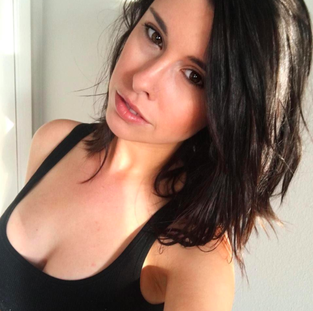 Lyndsay Hall earned her MFA in Creative Writing from Antioch University, and she teaches creative writing to children and teens. Her writing has appeared in online and print journals and magazines, including her mental health blog (obviously) and her personal one, Sunday Whiskey. In 2015 she founded the Los Angeles literary community Sevilla Writers House. In her free time, one might find her dancing in her underwear, serenading her dog, eating with her hands, or all three at once. You can stalk her on Instagram and Twitter @lyndshaaay. |
AuthorOur fabulous blog team Archives
June 2024
CategoriesAll 12 Songs Art Art And Athletes Book Review Chorus Blog Date This Book Game Of Narratives Guest Blog Letter From The Editor Lifehacks Movies Of 2019 Music Pup Sounds Smackdown Strive For 55 Summer Playlists |
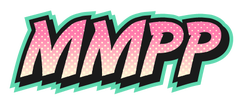
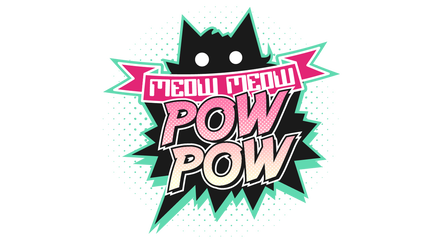
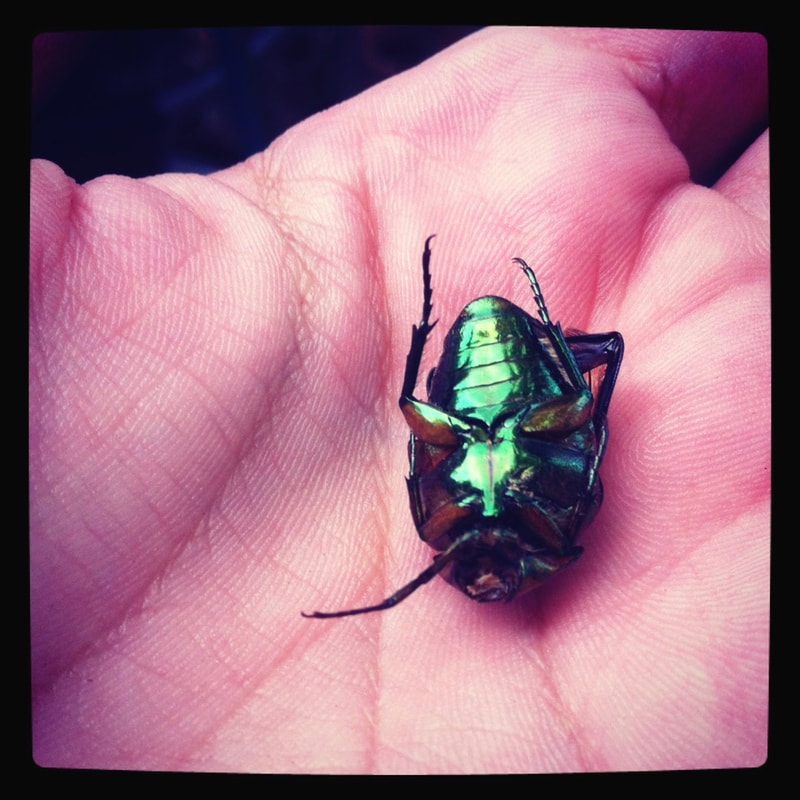
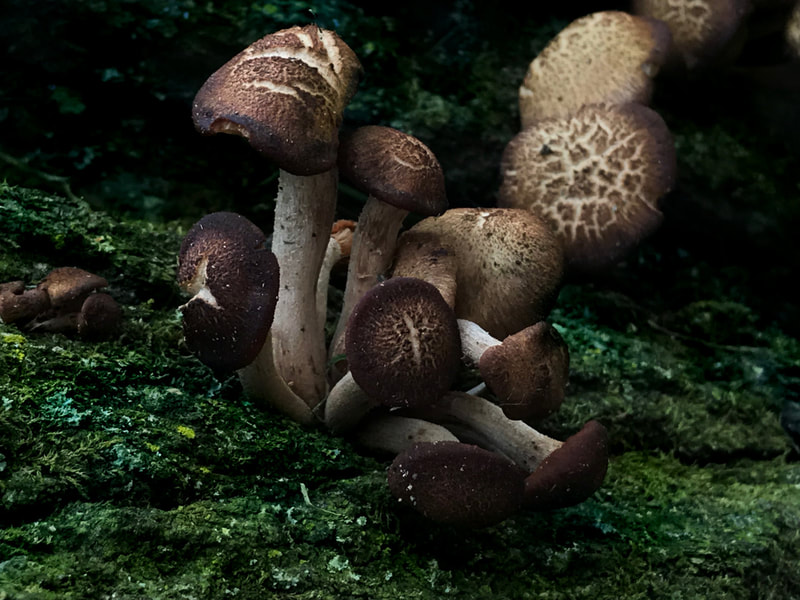
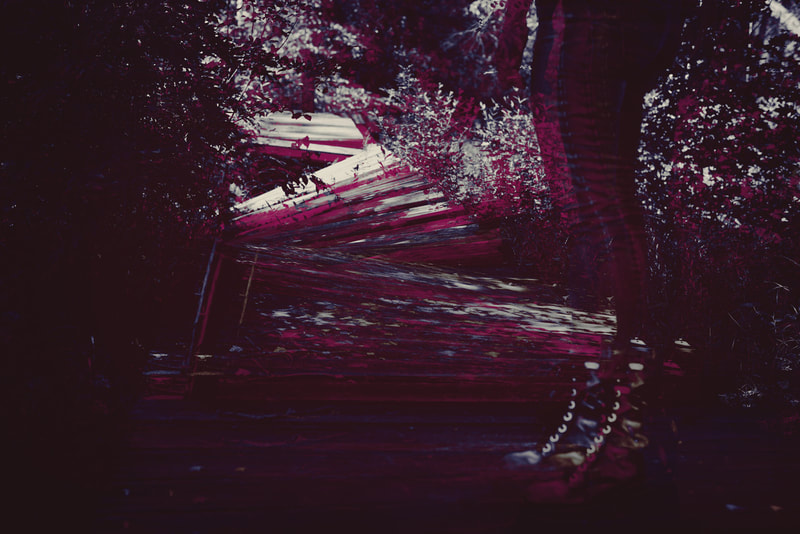
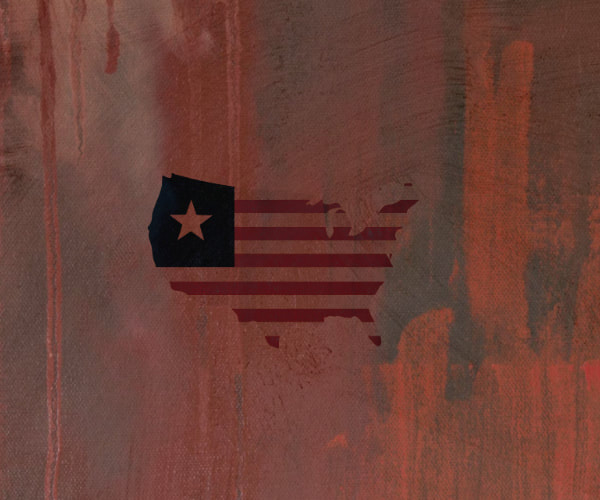
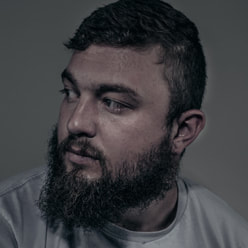
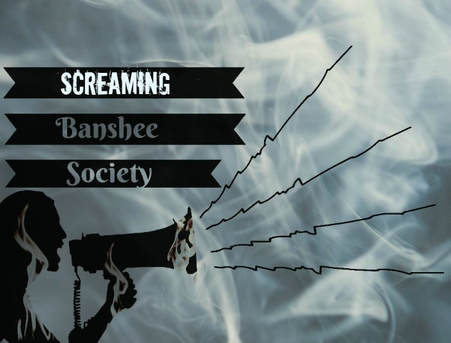
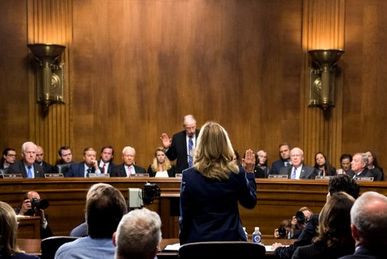
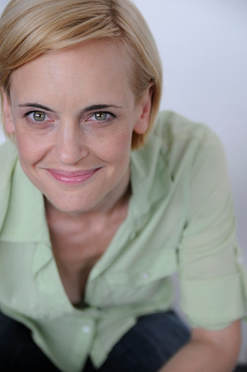
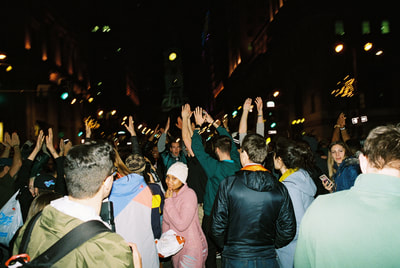
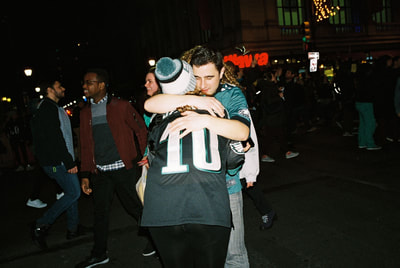
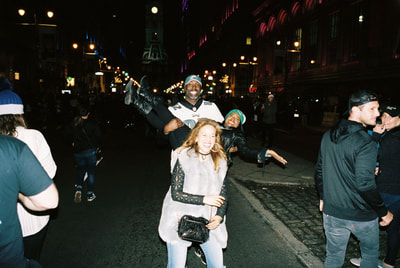
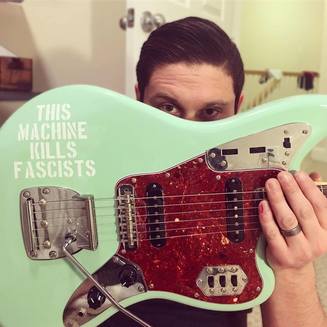
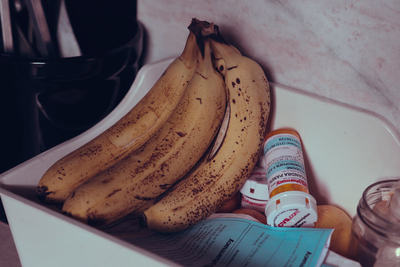
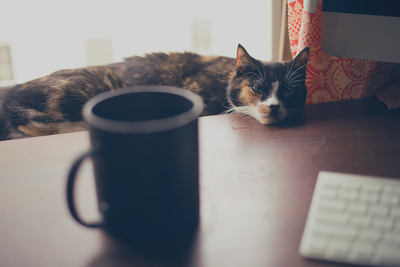

 RSS Feed
RSS Feed